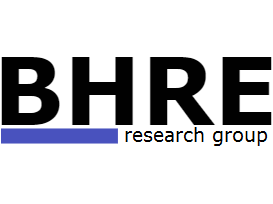Making Human Rights Due Diligence Work
/
Landmark publication on human rights due diligence published by University of Greenwich
All workers in the world have a right to decent work: safe and healthy working conditions, protection against discrimination, fair and adequate remuneration, freedom of association, and other fundamental human rights that are enshrined in international labour standards. Regardless, the global production of goods is tainted by the abuse of human rights. Every global supply chain, and many local ones, in sectors from food and beverage, electronics, garments, surgical material to bricks and stones present serious risks of human and labour rights violations to workers.
In recent years, companies have been called to exercise ‘human rights due diligence’ when taking commercial decisions, which means identifying, preventing and mitigating the human rights risks and impact of their activities.
Different countries have also passed legislation to make it mandatory for companies to implement such due diligence strategies or to report on their efforts to address human rights risks, including in the UK through the Modern Slavery Act (2015). This month, the European Commission announced that it will propose new rules on mandatory human rights and environmental due diligence in EU companies’ global supply chains.
The Sustainable Trade and Responsible Business (STRB) Development Programme of the Natural Resources Institute (NRI) and the Business, Human Rights and the Environment Research Group (BHRE) at the University of Greenwich, have published their report ‘Making Human Rights Due Diligence Work: An Analysis of Impact and Legal Options’, commissioned by the Fair Trade Advocacy Office and Brot für die Welt, and authored by Professor Valerie Nelson, Professor Olga Martin-Ortega and Michael Flint. In the report, the authors present the current evidence on the impact of human rights due diligence on the ground in two sectors: agriculture and textiles. Through desk-based research, a significant number of interviews with key actors, and validation of the findings through stakeholder workshops, the authors developed a theory of how policy and regulatory developments on corporate human rights due diligence are anticipated to effect change on companies, their suppliers and the workers and communities affected. They also provide a series of recommendations which will inform civil society in their advocacy efforts and advise policy makers in their attempts to develop effective mandatory human rights due diligence frameworks.
The COVID-19 crisis has demonstrated that, now more than ever, human rights due diligence is critically important for the protection of workers in global supply chains. The need for human rights due diligence is thrown into sharp relief by the pandemic, as pressure builds on certain supply chains to produce faster and larger quantities of goods in some sectors, while others come to a complete standstill, creating many different, serious risks of human rights abuses. Our report seeks to contribute to better understanding of how mandatory due diligence may work, and how it can be improved, as well as pointing to additional measures which are needed to protect human rights.
The Executive Summary of the Report is available here
The Full Report is available here


